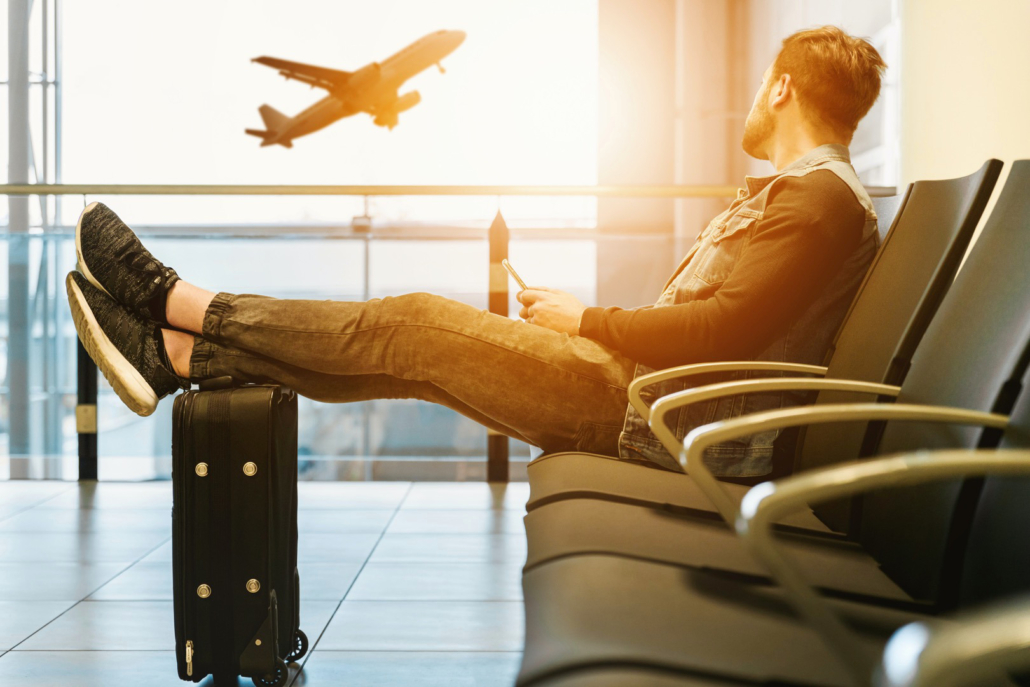360 VR X Travel Industry
As the travel industry awaits the new normal, and hopefully the old normal once again, technology, which in itself requires no mask and is subject to no travel restrictions, has been moving along at its standard exponential rate of growth. From the simplest Zoom meeting to the most advanced virtual reality experience, the nature of humankind is once again adapting to its environment. Like the virus itself, the travel industry mutates to allow for its most basic survival elements: communication, connection, and travel.
In recent years, technological and commercial developments around Virtual Reality (VR) have fuelled speculations about its impact on numerous industries.
Businesses operating within the travel industry has been especially quick to adopt virtual reality technology and for good reason. Typically, their customers are looking to purchase experiences, rather than products, and virtual reality offers an effective way for marketers to give them a taste of what they can expect.
According to a report published towards the end of last year by Research And Markets, virtual reality is set to have a big impact on the travel and tourism industry in the next few years.
“VR offers the potential to create substitute experiences that may be extremely useful for heritage and natural preservation”
Ralph Hollister – Travel & Tourism Associate Analyst
The COVID-19 pandemic hit the tourism industry the hardest. Countries sealed borders, airlines were grounded, people stopped travelling and stayed home for months, popular destinations that were thronged by millions through the year. But also gave rise to a new form of adventurous experience, virtual reality. The pandemic did not spearhead VR technology. In fact, many companies and industry leaders were using virtual reality as soon as it became available and applicable to travel.
How does virtual reality apply to tourism?
Virtual reality and tourism are made for each other. For as long as commercial tourism has existed, it has been a primitive form of VR. The new-age tech was meant to enhance our experience while exploring the world in real-time. Today, VR is the de facto tool for tourism, the alternative to actual travelling.
Virtual reality may never replace traditional travel, but it still offers intriguing possibilities. If the technology becomes sophisticated enough, the more environmentally conscious among us, especially those aiming to reduce carbon footprints, might prefer this form of escape.
What Virtual reality bring to the travel industry
 Typically, customers are looking to purchase experiences, rather than products, and virtual reality offers an effective way to give them a taste of what they can expect.
Typically, customers are looking to purchase experiences, rather than products, and virtual reality offers an effective way to give them a taste of what they can expect.
By using virtual reality (VR Tour) in marketing strategies, a business can have a great influence on the process of finding information from potential or repeat tourists. VR can offer tourists access to destination information in a much more accurate and reliable way than when compared to traditional promotional material.
Because travelling is all about being overwhelmed by experiences, vacationers want to know beforehand that they will be paying for a holiday that will immerse all their senses into bliss. With Virtual Reality, people are now able to see and visit these destinations before they go.
360 VR is able to activate emotions by stimulating the users’ senses. Because with virtual reality users are able to interact within the experience. This creates a great opportunity for the entire travel industry, especially for tourist destinations.
However, for those travel companies looking to be at the forefront of the technology, the cost can be worth it to allow them to stand out from the crowd and provide an unrivalled experience to their clients.
Virtual Tours of Hotels is one of the best examples of virtual reality in action within the travel industry is the use of technology for providing virtual tours of hotels and hotel rooms. The key benefit of this is that it allows potential customers to experience what the hotel looks like before they arrive, offering more transparency than standard images.
Virtual Travel booking interface
360 Virtual reality allows potential customers to explore the destination first before making a booking, travellers can use this technology for inspiration of new destinations and plan ahead to reduce the risk of disappointment through (virtual) “trying before buying”.
A virtual booking interface is another very recent development within tourism VR. Users can book their holiday whilst wearing a VR headset. All of the booking processes take place within virtual reality.
Everything from choosing the hotel to paying for the holiday happens whilst the user is experiencing VR. Whilst this has limited applications, we can see travel agencies and companies taking this approach to increase the number of conversions.


